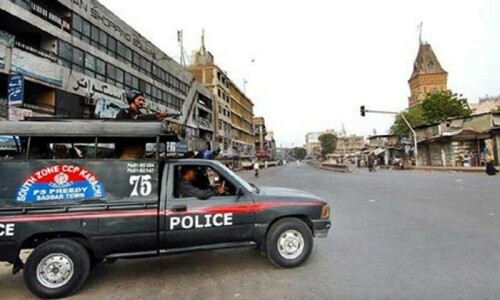
MIRZA Ghalib (1797-1869) is a literary colossus. December 27 marks Ghalib’s birth anniversary. While remembering Ghalib, many things come to one’s mind, including lexicographical issues.
Ghalib was not a lexicographer, but had a deep interest in lingual and lexicographical matters, as shows Qat’e-i-Burhan, Ghalib’s criticism written in Persian on a famous and authentic Persian dictionary named Burhan-i-Qat’e. Ghalib’s critique of the Persian dictionary was not taken well among the conformists and it kicked up a controversy that stirred reactions, rejoinders and counter arguments. As a result, at least 14 books or pamphlets were published, some against and some in favour of Ghalib’s point of view.
The prolonged heated disagreement continued even after Ghalib’s death and many scholars, including towering figures such as Qazi Abdul Wadood and Prof Nazeer Ahmed, published detailed assessments on the issue. Here is a brief account of the Persian dictionary, the book written by Ghalib and the battery of works and reactions it unleashed:
According to Prof Nazeer Ahmed, Burhan-i-Qat’e is a Persian dictionary compiled by Muhammad Hussain Tabrizi in 1062 Hijri/1652AD in Deccan. The compiler’s penname was Burhan and his forefathers had migrated to India from Tabriz, Iran. The dictionary, considered one of the important Persian dictionaries, had become very popular because the compiler had collected words from different older dictionaries. This was strength of the dictionary as well as weakness as it had gathered all the entries found in other lexicographic works without much scrutiny and it led to many inaccuracies.
Ghalib was confined to his home during the violent events of 1857 war of freedom and the turmoil that followed. During this forced solitude he penned Dastamboo, a book in Persian, and then just to spend time meaningfully he began studying Burhan-i-Qat’e. Ghalib felt there were many inaccuracies and he began noting the ‘lapses’ in the margins. Later on, he compiled what he thought were ‘errors’ with his remarks and thus a book was made. Completed in 1860, Ghalib named it Qat’e-i-Burhan and it was first published in 1862 from Lucknow. Ghalib revised and expanded the book. He renamed it Dirafshe-i-Kaviani and it appeared as second edition in 1865 under the new title.
Ghalib had infuriated many of the old school followers with his criticism and it elicited a number of books against his work. But some others supported Ghalib and wrote in his favour. We can mention these books only briefly here. The first book to appear against Ghalib’s criticism of Qat’e-i-Burhan was Muharriq-i-Qat’e. Written in Persian by Syed Sa’adat Ali, it was published in 1864.
In reply to Muharriq-i-Qat’e three pamphlets were written, siding with Ghalib: Lataaif-i-Ghaibi, written in Urdu by Mian Dad Khan Sayyah and published in 1864. Sayyah was Ghalib’s friend, but many scholars, including Malik Ram, believe that it was in fact written by Ghalib himself. The other one was named Daaf’e-i-Hazyan, written in Persian by Syed Najaf Ali Khan and published in 1865. The third one supporting Ghalib’s point of view was a brief pamphlet named Savalaat-i-Abdul Kareem. Apparently written by a student named Abdul Kareem, but many scholars feel this too was written by Ghalib himself.
Saat’e-i-Burhan was the title of another Persian book opposing Ghalib’s point of view. It was written by Mirza Raheem Baig Meruthi. Ghalib’s reply came in the form of an Urdu letter, published under the title ‘Nama-i-Ghalib’. Ameenuddin Ameen had written a book in 1864-5 in reply to Ghalib’s Qat’e-i-Burhan, but it could not be published until 1866. It was named Qat’e-ul-Qat’e. Ghalib did not reply to it as its language was highly objectionable. When somebody asked why he did not write a rejoinder, Ghalib said “would you kick a donkey if it kicked you”?
Another book opposing Ghalib was named Muayyid-i-Burhan. Written by Agha Ahmed Ali Ahmed, it appeared in 1866 and is considered among the authentic works on the issue. Ghalib replied to it with a 32-page Urdu booklet named Taigh-i-Tez, which appeared in 1867. Some other booklets or pamphlets published on the issue include Hangama-i-Dil Aashob, Teghe-i-Tez Tar and Shamsheer-i-Tez Tar.
It all ended up in a legal battle. According to Malik Ram, Ghalib submitted on Dec 2, 1867, an application to Mr Obrien, Delhi’s deputy commissioner, saying that the language used in the book Qat’e-ul-Qat’e by Ameenuddin was highly disparaging and lewd. The commissioner referred the case to the then assistant commissioner who dealt with the criminal cases. The witnesses produced by Ameenuddin justified the disparaging language by incorrectly interpreting lewd words used in the book. To cut a long story short — dismayed as Ghalib was — on March 23, 1868, he withdrew the petition on the intervention of some distinguished figures.
But the final verdict was announced by Prof Nazeer Ahmed, Aligarh’s famed scholar of Persian, in his book Naqd-i-Qat’e-i-Burhan (Delhi, 1985). He said both Ghalib and the compiler of Burhan-i-Qat’e had given too much importance to Dasaateer, a book that has been established as “fake”, so both had erred. Also, some of Ghalib’s objections were correct but on many occasions, he was totally wrong.
Published in Dawn, December 23rd, 2019











































Dear visitor, the comments section is undergoing an overhaul and will return soon.